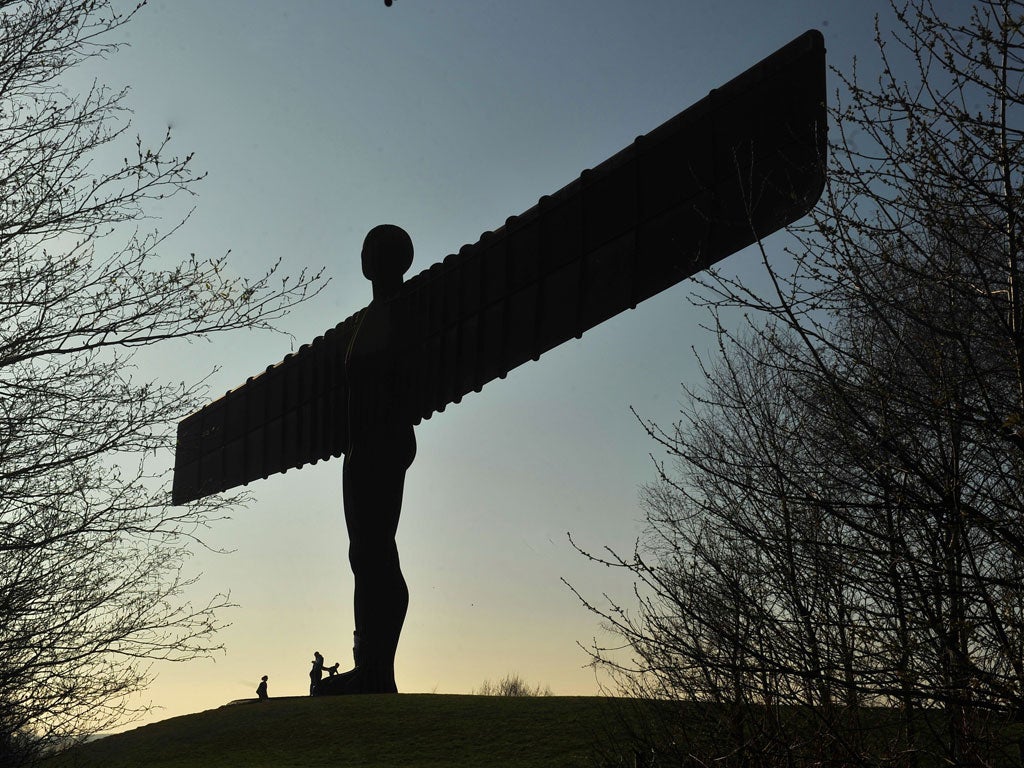It’s not because I’m sentimental about the North that I believe it needs devolved powers
This is a region that deserves the opportunity to reinvent itself


It had to happen, of course. No sooner does Scotland give Westminster the heebie-jeebies in a close-run referendum, extracting further concessions in the process, than a drive is launched for devolution for the north of England.
Called simply Campaign for the North, and chaired by former Tory MP Harold Elletson, it wants Devo Max along the lines secured by Scotland for the six traditional counties of Northumberland, Durham, Lancashire, Yorkshire, Westmorland and Cumberland.
I’m all for it. If I think of the characteristics that define the Scottish push for independence, they can all be applied to the North. Put simply, the North is a different country from the rest of England.
Independence is not on the agenda but in terms of geography, heritage, language, history, culture and economy the North remains a place apart. I can say this as a Northerner. But I’m not one of those types who wax nostalgically about flat caps and whippets.
That’s not to say I am not fond of it or its people. Their directness can be breathtaking, their humour cutting. But folk in the South can be just as sharp, equally as funny. It’s not true either that Northerners are friendlier or warmer. In my view, in that respect, North or South, they’re just the same.
No, in the same way that localised quirks did not come to define the Scottish contest they should not be allowed to mask the case for the North.
In Scotland, in the end, most of the differences, while important and contributory, had slipped into the background. What the final push came down to was, would the Scottish people be better off in an independent nation?
The argument narrowed, so it was focused on the economy, education, health and welfare. That should be the case with Northern devolution, where, defining as they are, references to black pudding and Peter Kay should be put to one side.
If you focus on what really matters, the case for the North to have its own say over infrastructure planning, education programmes, wellbeing, housing and policing is unassailable.
Just as the South has become increasingly focused on service and creative industries and the City of London, to too should the North be allowed to play to its strengths. While many of the large-scale manufacturers have gone, the North is still about producing things. It’s a region of engineers and industrialists,.
The old industries and their attendant skills remain, albeit in much-reduced form. A few years ago , I was asked back to my home town of Barrow-in-Furness to speak on “how Barrow can reinvent itself.” My question was, what do you want to reinvent yourselves as? Because if you want to switch from making submarines to washing machines South Korea will put you of business in two weeks.
I told them then, but it could just as easily apply to other pockets across the North (textiles in Manchester, say, cars in the North-East, cars and shipping in Liverpool): “You make nuclear submarines. You should be encouraging start-ups and innovation around that, around what you do best, what you lead the world in.”
There was a tendency in Barrow that day for the town to follow the herd – a direction set by the South. So, the talk as well was of a marina and visiting cruise liners, and how these might provide employment for the large numbers of school-leavers denied the chance of learning a proper trade (the greatest crime committed by the Westminster government in the North was the abolition of the craft apprenticeships, although the scrapping of rail links coupled with a failure to invest in transport run it close).
That experience could be repeated throughout the North. For too long, councils there have opted for short-term fixes without thinking and spending longer-term. Too many former mills have been turned into museums and discount shopping centres.
The world still wears clothes. The North led the world in producing the materials for them. It should be leading the world again, but this time in research and development in textiles, in producing new fabrics, in companies backed by a “Bank of the North”.
The argument for bringing together education authorities, health bodies and police forces into single, Northern-wide units is overwhelming.
Local government should be revisited, so some Northern councils stitched together by fertile, ignorant minds in London are abolished.
Campaign for the North commissioned a study on the benefits of devolution from a group of experts. Their conclusion : “The North would contain a population of over 15m people, roughly the same size as Bavaria or North Rhine-Westphalia in Germany… It would have an administration of its own, determined to set about improving its trans-Pennine infrastructure, investing in education and supporting the development of the industries of the future within its borders.”
Amid the calls for an English Parliament, what is being lost is the fact that England already has devolution. London is treated as a separate entity, with its own mayor, with many of the powers currently afforded to the first ministers in Wales, Northern Ireland and Scotland. Boris and the country leaders have the ability to take decisions on infrastructure, economic development, and education.
Regionalisation then, is not such an innovation where England is concerned. It’s got one, in London; it must have another, in the North.
Join our commenting forum
Join thought-provoking conversations, follow other Independent readers and see their replies
Comments
Bookmark popover
Removed from bookmarks